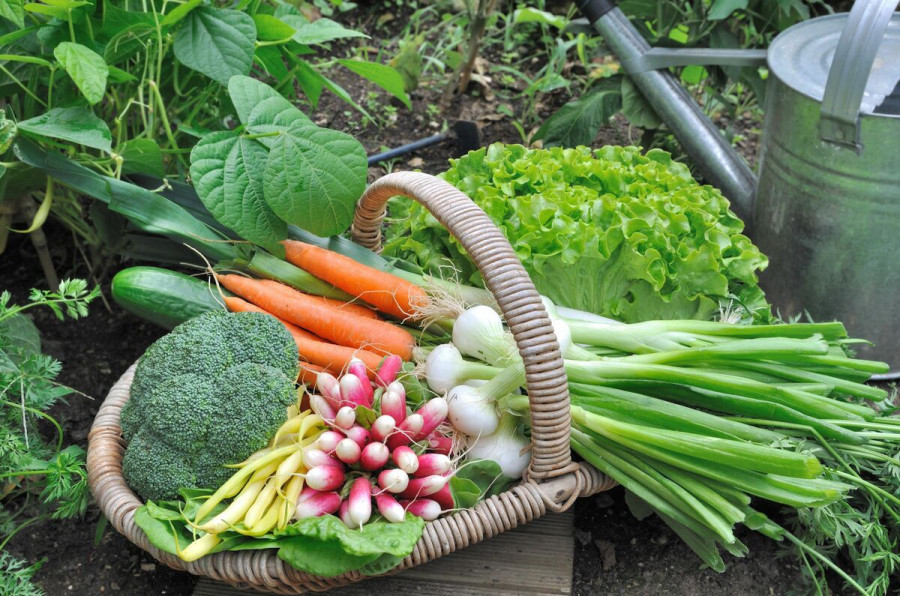Like any recipe, you have the licence to freestyle as long as you know the key ingredients and the fundamental proportions, the same is true with nurturing your home garden. Here are a few tips to keep in mind when starting your own vegetable garden at home.
-
Sunlight: Making sure your vegetables have adequate sunlight is crucial. Plant your garden in a place that ensures your plants get at least six hours of direct sunlight each day. If you are planting a few different kinds of vegetables this may require a bit of planning and research to make sure the taller plants don’t block the smaller ones from getting the sun they need.
-
Soil: Once you have decided where to place your garden, now you have to think about what makes the perfect bed for your vegetables to grow. Soil with a lot of organic matter (compost) is key. Compost has lots of nutrients and microorganisms that promote the health of your garden, making it prime for a full and robust harvest. The consistency of your soil/compost combo is important too. It should clump together when you squeeze it in your hands but crumble easily when you disperse it. If you're new at this, you can buy the compost, but if you get a compost bin, you can start making your own for your garden next year.
-
Water: Here is the rule, one inch of water per week (this includes rainwater). Measuring one inch of water just by looking at it is next to impossible so a few things to keep in mind to ensure you are not over or under watering is to water for 20-30 mins at night. The purpose is to get the water to the roots. If you water at night you are not competing with the sun drying up the water before the roots get hydrated. Also, use a dry wooden garden stake to stick a few inches down and check for moisture, just like you would a cake!
-
Mulch: My mother put me on to this one. Mulch isn’t just to make your garden pretty, but it has a practical purpose too. Again, watering can be tricky and could be the thing that kills your garden. Over watering can cause diseases that won’t only hurt your vegetables but also poison the soil. Mulch is a fantastic irrigator that disperses water slowly. It keeps the plants cool when temperatures rise and warm when it falls, which also helps to extend the planting season. Mulch also suppresses the growth of weeds. Place about three inches of mulch around your plants and they will flourish.
-
Pesticides & Fertilizer: My grandfather, a farmer, would say, “if the bugs don’t want to eat it neither should you.” Most insects in our garden are good and we shouldn’t be too quick to spray pesticides because pesticides kill indiscriminately (good and “bad” pests alike). If you must intervene, first try a natural remedy like vegetable oil and mild soap in a spray bottle. If you do use commercial pesticides, it is better to apply it at night when the friendlier bugs aren’t around. Go easy on fertilizers, bigger is not always better. If you overfeed your plants they will be bigger but your harvest will be less. If you keep the soil rich with the right compost ratio, your vegetables will thrive.
*Consider building raised garden beds; this will help when grouping compatible plants together and save your back when tending to your garden as it grows.

 By
By 





